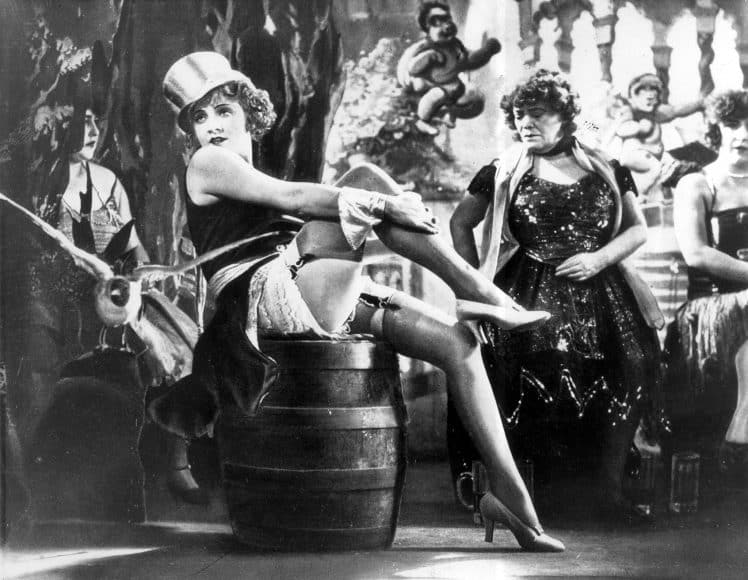
Dir.: Josef von Sternberg; Cast: Emil Jannings, Marlene Dietrich, Kurt Gerron, Hans Albers; Germany 1930, 106 min.
One of many Germans who would later emigrate to Hollywood, UFA boss Erich Pommer wanted to raise the profile of German cinema, feeling it had not adapted well to sound. So he engaged Hollywood director Josef von Sternberg (Undeworld) to direct Heinrich Mann’s 1905 novel Professor Unrat at Babelsberg.
Set in 1924, Emil Jannings played the anti-hero, Professor Rath, who is a strict teacher, and a very repressed man. When is comes to his attention that his High School students are visiting a rather notorious establishment called Der Blaue Engel, to meet the well-known singer LoLa-Lola (Dietrich), he is hell bent on destroying their fun. But instead, he falls in love for the first time in his life. After a night with Lola, he asks for her hand, and is immediately dismissed from his position. With his new wife, he tours small towns, and even takes part in the stage acts: the cabaret owner Kiepert (Gerron) asking him to crow like a cockerel. But Lola is not the faithful type, preferring the young and athletic Mazeppa (Albers) and Rath soon becomes disillusioned and turns to alcohol. When the troupe arrives in his home town, where a large crowd awaits his appearance on stage, Rath has a nervous breakdown. And after trying to strangle Lola, he runs off to his old school to meet his maker.
Dietrich’s songs: “Ich bin die fesche Lola”, dominate the feature: Von Sternberg took her to Hollywood, where she starred in six of his films, becoming an American citizen in 1939, and, for a while, an international star. Siegfried Kracauer, for whom Fritz Lang’s M and The Blue Angel were the most significant German films of the the Weimarer Republic, called the feature “sadistic”. And it is true: Rath is tortured in every way possible after he sets eyes on Lola – he is no match for her, or the milieu he has chosen to live in. He is a victim of what Kacauer called the “Street films”, where the middle class man attempts to follow his passion, but is brutally punished. Rath is one of many tragic screen heroes who can only function in a restricted lower middle-class environment due to his emotional regression. For Kracauer, the majority of German men fell into this category.
Dietrich’s casting proved to be a turning point in the life of two German actors – just six months apart by birth – who aspired to convince Von Sternberg to cast them. The other was Leni Riefenstahl was already an established film star who had had great success in ‘Mountain’ films, a popular sub-genre in Germany. Dietrich on the other hand, was not much more than a singing extra both in films and on stage. Riefenstahl dined with Von Sternberg hoping to get a part in The Blue Angel, but after she heard that he had plumped for Dietrich, she told the newspapers that she had recommended her rival, in order to save face. But according to a another version she shouted “Okay, let the whore play the whore, who cares”. The rest, as they say, is history – and much more than film history. AS
Eureka and The Masters of Cinema Series is proud to bring The Blue Angel back to big screen once again from 31 May 2019, when it is released in selected cinemas nationwide (UK and Ireland) to coincide with the centenary of the Weimar Republic and the BFI Southbank’s major two-month season Beyond Your Wildest Dreams: Weimar Cinema 1919-1933.